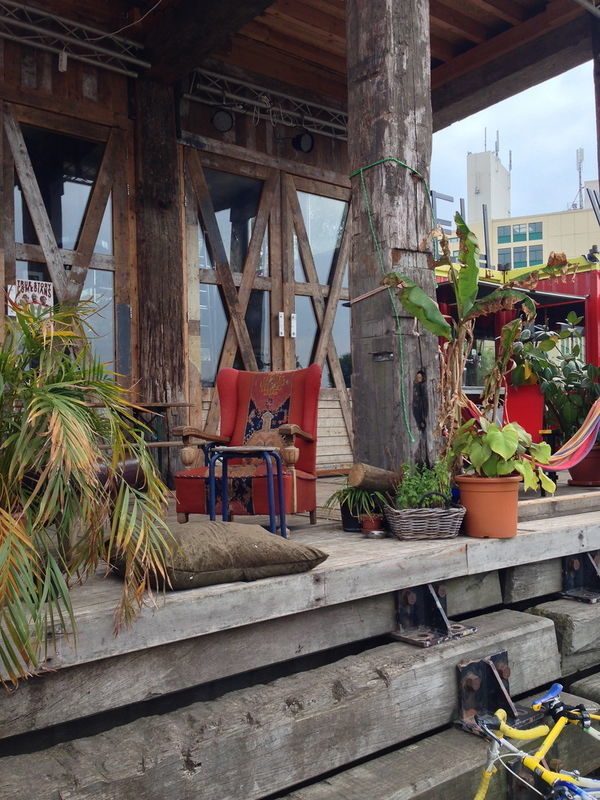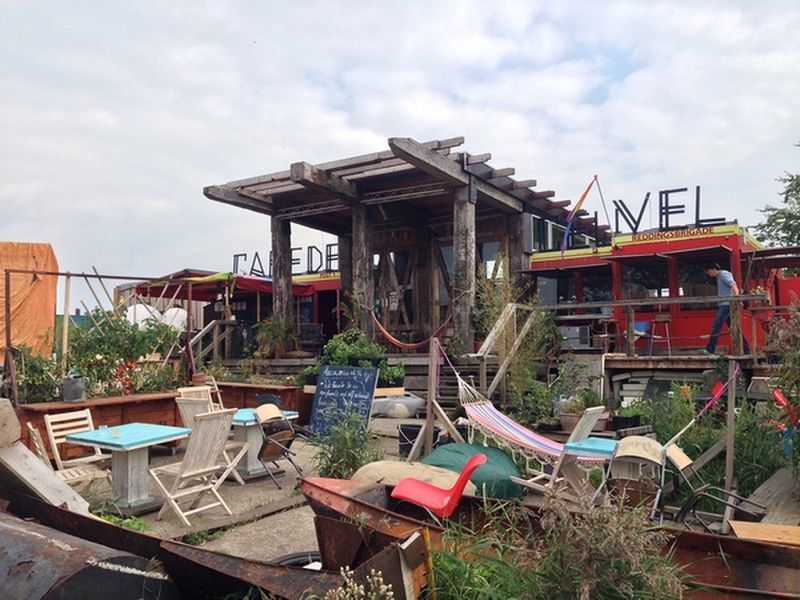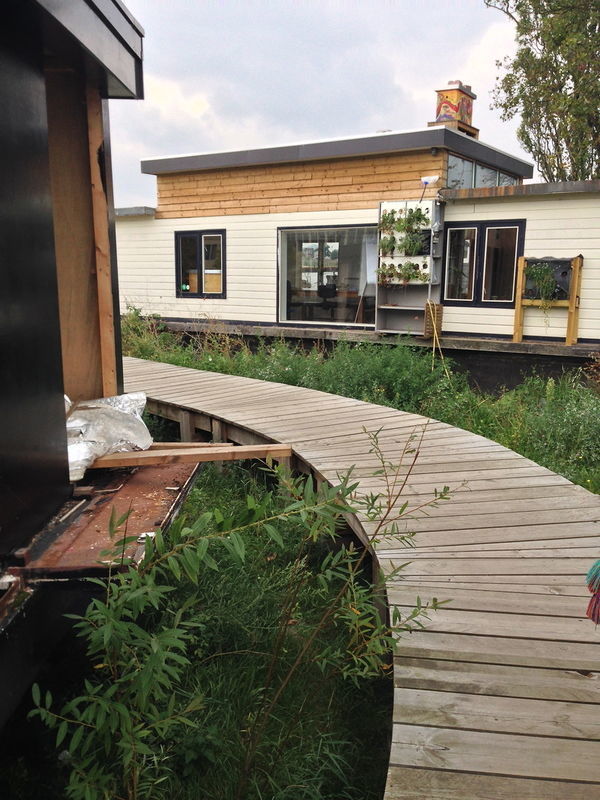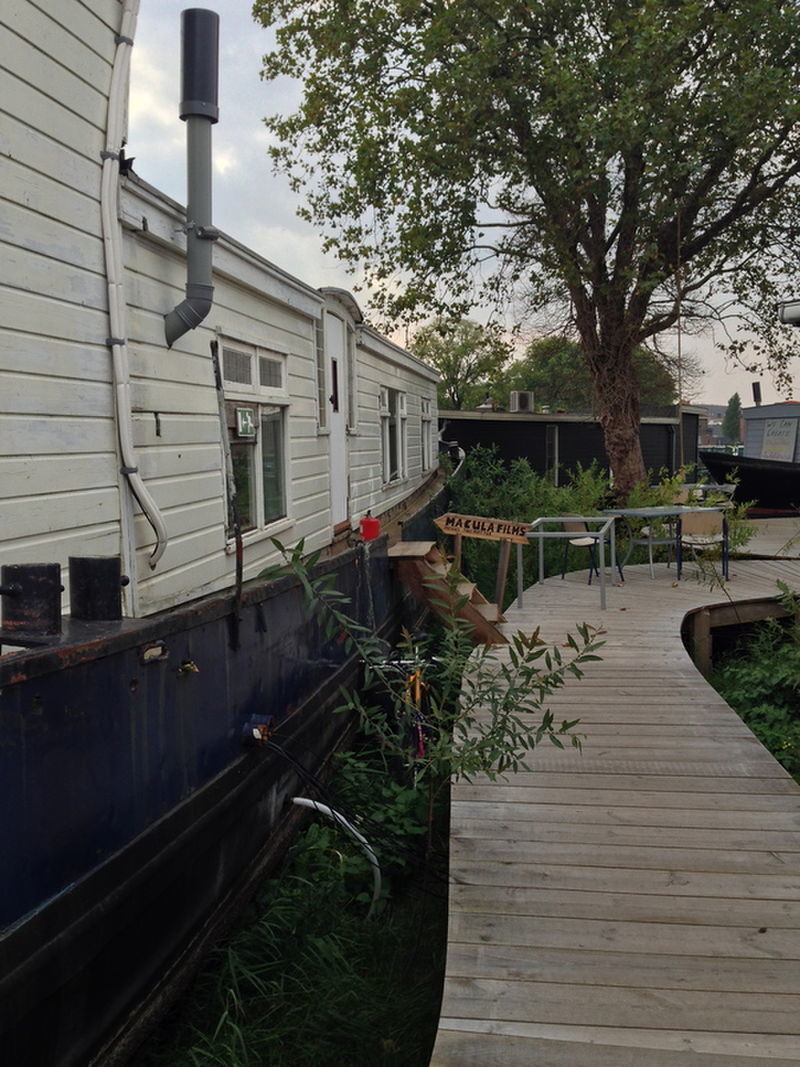Difference between revisions of "De Ceuvel"
(→CLEANING THE SOIL) |
|||
| Line 16: | Line 16: | ||
=== CLEANING THE SOIL === | === CLEANING THE SOIL === | ||
| − | + | Due to the polluting activities of the shipping industry, the site is highly polluted by heavy metals and motoroil. Digging the dirty soil out is an intensive job and a very expensive one as well. Therefore the creators joined forces with DELVA Landscape Architects in collaboration with the University of Ghent. They came up with an organic idea; purifying the soil by using phytoremediation techniques. 'Phyto' is Latin for plant and 'remediation' means restore balance, the balance of the soil is being restored through planting plants that are able to take in, degrade and break off the pollutants. It will probably take approximately over 30 years until the soil will be cleaned entirely. The plants will eventually be fermented in a biogas digester, which will be used to cook and stoke. | |
| − | |||
| − | + | [[File:ceuvel3.jpg|600px]] | |
| − | + | Space&matter and Metabolic Lab provided the design and technical outfitting of the boat retrofits, together with construction foreman and boat expert Huib Koel. | |
| − | |||
| − | |||
| − | |||
| − | |||
| − | |||
| − | |||
=== RE-USING IN THE MOST ECONOMIC & CREATIVE WAY === | === RE-USING IN THE MOST ECONOMIC & CREATIVE WAY === | ||
Revision as of 04:00, 27 January 2015
Author: Carli Schenkeveld
Next to the van Hasselt canal at the IJ in Amsterdam-Noord, a former ship warf today harbours a very special association of creative and social entrepreneurs. This polluted, fallow piece of land had found a new temporary function in which the polluted soil will be cleaned, left-over houseboats are reused and autarkic ways of living, working and building are tested and shown in a Do It Yourself manner. De Ceuvel is run by a group of landscape-/architects, artist, photographers, designers a.o. Due to their amazing plan that combines sustainabilitya and social motives, stimulates the local economy (keeping transport cost low) and sets up a foundation as well as an incentive, the site was appointed for a 10-year lease from the Municipality of Amsterdam. Running for almost one year now, De Ceuvel already established an up and running public cafe called Café de Ceuvel. Also the site harbours workplaces for creative and social entrepreneurs, which at the same time serves as a community of entrepreneurship. This is not just any kind of community, you will not find a place like this anywhere else in Europe as extensive as De Ceuvel.
Contents
AN ALL SELF-SUSTAINING CAFE
The cafe is the first thing that catches your eye on the site because of it's robuste architecture. The frame seems to be build from old harbor bollards. The entire cafe appears to be built completely(!) with recycled materials. Referring back to the roots of the area, an old ship warf in the harbor of Amsterdam. The café is already very popular to the people of Amsterdam & is being used for shows, expositions and research.

pavilion designed by architect Wouter Valkenier
CLEANING THE SOIL
Due to the polluting activities of the shipping industry, the site is highly polluted by heavy metals and motoroil. Digging the dirty soil out is an intensive job and a very expensive one as well. Therefore the creators joined forces with DELVA Landscape Architects in collaboration with the University of Ghent. They came up with an organic idea; purifying the soil by using phytoremediation techniques. 'Phyto' is Latin for plant and 'remediation' means restore balance, the balance of the soil is being restored through planting plants that are able to take in, degrade and break off the pollutants. It will probably take approximately over 30 years until the soil will be cleaned entirely. The plants will eventually be fermented in a biogas digester, which will be used to cook and stoke.
Space&matter and Metabolic Lab provided the design and technical outfitting of the boat retrofits, together with construction foreman and boat expert Huib Koel.
RE-USING IN THE MOST ECONOMIC & CREATIVE WAY
woonboten in de Amsterdamse grachten die niet meer goed functioneren, zijn erg duur om van af te komen, het wegslepen & sloop van een woonboot bedraagt al gauw Houseboats were upgraded to offices, studios or workshops for creative and social entrepreneurs.
Crowdfunding self-reliant participatie samenleving met vrijwilligers
allom is het een prachtig initiatief dat laat zien dat in tijden van crisis een goed plan met flinke schouders eronder, wel degelijk een goede kans heeft.
Future plans
The formal industry terrain was slowly formed to this unique urban development. The public areas like Ceuvel Café and Bed & Breakfast are a part of the future plan to become entirely self-sustainable. Re-using water & energy.
De Ceuvel was crowned ‘Frame’ of Public Dutch Award; It’s one of Europe most sustainable and unique urban developments.


